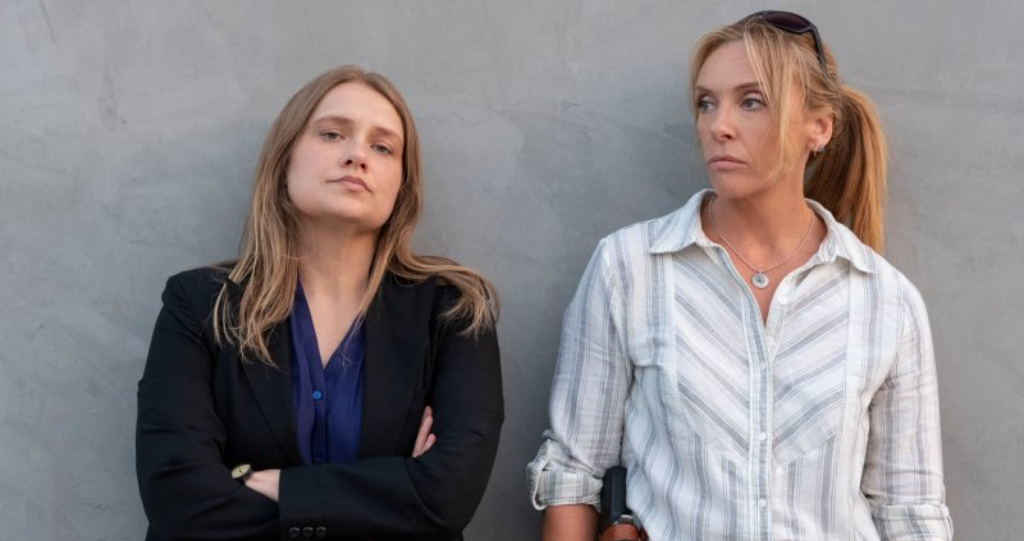The slow-burn Netflix true-crime series Unbelievable contains truths about rape and the failings of the justice system that are too hard to take
Here’s something I did with the Netflix crime drama Unbelievable that I’ve never done before.
I censored a subplot. I excised a chunk of story. I made a deliberate decision to fast forward through certain definable sections.
Why?
Certainly not because of quality issues. The eight-part season was a masterclass in slow burn, forensic, true crime, storytelling. Dramatic but not showy, angry but not preachy.
It luxuriated in the performances of three of the finest female actors working on the screen today. They turned out for this, presumably, because they recognised this was not only a clever and nuanced drama with some meat for the molars to work upon, but also because it carried an important and timely message.
For the story was based on a Pulitzer Prize winning article by T Christian Miller and Ken Armstrong. It told some unpalatable truths about rape and how it becomes a second tier crime through the simple mechanic of bringing about the destruction of the victim.
The impact of rape and its treatment by the justice system is such a wildly disproportionate match up that it is like the sun and the moon contesting a tug-of-war.
Unbelievable performances
That returns me to my decision, taken halfway through episode two and finally rescinded in episode seven. That is, to remove myself from the plight of Marie Adler, the first victim of a rapist who was so diligent in his crimes that it was easier to assume he was the product of girl’s look-at-me fantasy.
Because of this, young Marie was not only disbelieved and overlooked, but she was hounded cruelly by those determined to reinforce their own lazy prejudices. This reached the climax when Marie was convicted of false reporting and fined $500, having been deserted and let-down by just about every person, institution and official who should have been doing the opposite.
She had been driven to that point by an onslaught passive aggressive – and purely aggressive – tactics from the police, from her carers, from her friends. She was a creature of the system and so she was predisposed to disappointment, she was geared to a life without a champion.
But still, the ordeal crushed her from chunks to granules.

Played by the excellent Kaitlyn Dever (Justified, Booksmart), her endless torture and her protracted injustice was too hard to bear. As soon as I realised there would be no quick end to her story – a dramatic device that reflects a sad reality – I reached for the >>FF button. In an act of pure cowardice, I only rejoined her when there was a glimmer of hope.
Call me faithless, a fair-weather friend, a shameful lightweight – guilty, guilty, guilty – but I was not alone in my neglect.
Without her, I was still replete with dramatic fare. Because the frosty, minimalist but refreshing duo of Toni Collette (Det Grace Rasmussen) and Merritt Wever (Det Karen Duvall) was a pure feast of craft. Watch them work, those brittle doyennes – and marvel.
Lingering memory
What we had were two insular detectives, both control freaks, both obsessive to an unhealthy degree, both unyielding and unsentimental. These two similar characters on the same case was akin to pressing two like magnets together.
The repulsion, initially, was magnificent and operatic but delivered through minuscule gestures and barely-there icy side-glances. Their slow thawing, which thankfully never spilled over into sentimentality (or even friendship) was a joy.
But still the lingering memory from the season is the plea from a rape survivor to her attacker begging him to tell her why he had selected her. Because without that insight, her life was destined to be one of fear and shadows, of joyless, obsessive vigilance.
Read more: 7 ways to create a buzz about your brilliant book
The Lockdown Survival Handbook – out now
The Lockdown Survival Handbook – a top 10 best-seller on Amazon – written by Lucia Blash & Giles Broadbent is available now. £1.99.
Kindle books can be downloaded to any smart device – iPhones, Android, tablets. Just get the Kindle app from the your usual app supplier.
Find out more about what’s in the the book – and why it is an essential read right now – click here.
“Fun!” – London Evening Standard


